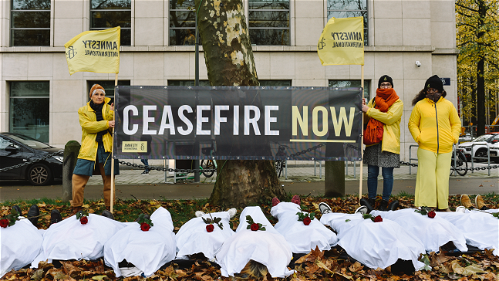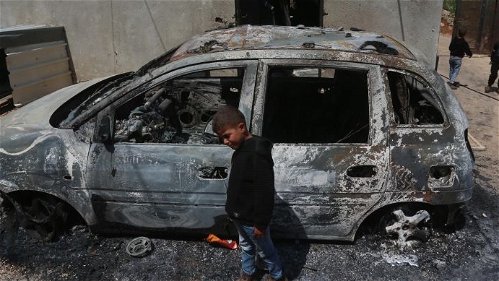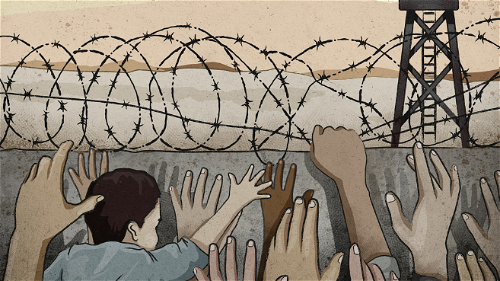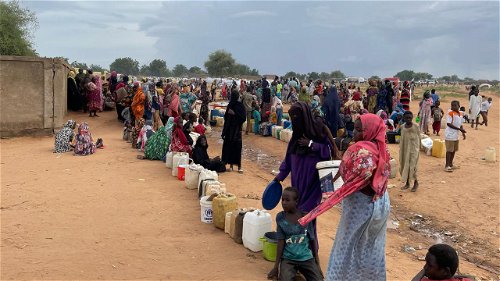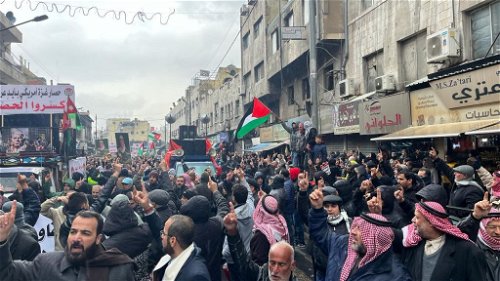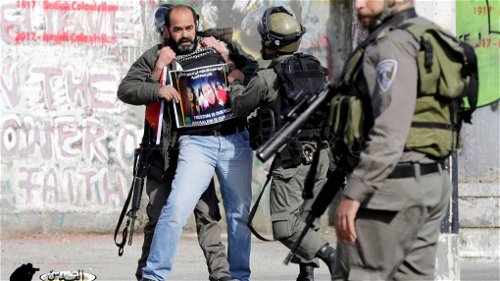
Servië: arrestatie Karadžic, belangrijke stap voor gerechtigheid
Naar aanleiding van de uitlevering van Radovan Karadžic aan het Internationaal Joegoslaviëtribunaal, vraagt Amnesty International om het Tribunaal voldoende tijd en middelen te geven zodat de waarheid aan het licht kan komen en gerechtigheid kan geschieden voor de slachtoffers van oorlogsmisdagen in Bosnië en Herzegovina.
"The UN Security Council must review the arbitrary deadline of 2010 set for the Tribunal for the former Yugoslavia to complete its cases," said Amnesty International on Tuesday.
"Of the 161 people charged by the Tribunal, cases against 115 have been concluded but there are still ongoing proceedings against a further 46. Two of those charged also still remain at large - Ratko Mladic and Goran Hadžic. The court must be given the necessary time to process all these cases."
Amnesty International is concerned that the Tribunal will not be able to try all those who have been charged but whose cases are ongoing by the 2010 deadline. As a result, indictments may be dropped due to a lack of time to consider all charges or appeals may not be considered.
Cases might then be referred to national criminal courts, where the organization has significant concerns about the quality of justice, ability to protect victims and witnesses, ability to locate evidence and the commitment to a thorough investigation and prosecution. In most countries of the former Yugoslavia a lack of political will, and sometimes even deliberate obstruction, continue to block the investigation and prosecution of war crimes.
"The arrest of Radovan Karadžic is a major victory. Amnesty International has been calling for his arrest and surrender to the Tribunal as part of its Arrest Now! campaign for the past decade. The cases of alleged perpetrators of such serious crimes, including Ratko Mladic and Goran Hadžic, should be considered by the Tribunal," said Amnesty International.
Radovan Karadžic, the former President of Republika Srpska, head of the Serbian Democratic Party and Supreme Commander of the Bosnian Serb Army (VRS), had been at large for more than 12 years since being indicted for crimes in Bosnia and Herzegovina, including genocide, crimes against humanity and war crimes in Srebrenica.
Background
Radovan Karadžic is charged with genocide, complicity in genocide, extermination, murder, wilful killing, persecutions, deportation, inhumane acts, and other crimes committed against Bosnian Muslim, Bosnian Croat and other non-Serb civilians in Bosnia and Herzegovina during the 1992-1995 conflict.
The charge of genocide against Radovan Karadžic includes the murder of approximately 8,000 Bosnian Muslim men and boys in Srebrenica in 1995. The indictment alleges that he also committed genocide, persecutions and other crimes when forces under his command killed non-Serbs throughout Bosnia and Herzegovina, detained thousands of non-Serbs and transferred them to detention facilities set up by the Bosnian Serb authorities. The indictment alleges that forces under his command killed, tortured, mistreated, and sexually assaulted non-Serbs in these camps.
Radovan Karadžic is also charged with war crimes for the shelling and shooting of civilians in Sarajevo which resulted in the killing and wounding of thousands, including many women and children.
The International Criminal Tribunal for the former Yugoslavia (Tribunal) was established by the United Nations Security Council in 1993 to investigate and prosecute crimes of genocide, crimes against humanity and war crimes committed in the former Yugoslavia since 1991.
Despite the fact that some persons indicted by the Tribunal remain at large, the United Nations Security Council in 2004 called on the Tribunal to complete its work by 2010.
